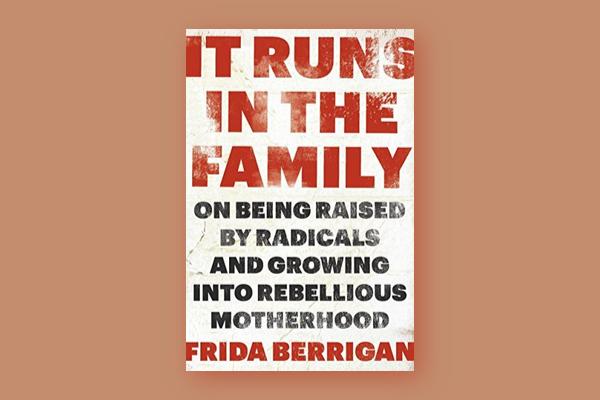SOME PEOPLE (I was one) will initially read this book to learn what it was like for the author to grow up in Jonah House, a faith-based community of peacemakers in Baltimore, with internationally known activist parents Phil Berrigan and Liz McAlister providing strong ballast when not spending time in prison for nonviolent civil disobedience. I wanted to know what formed the vibrant Frida Berrigan, with whom I work on the National Committee of the War Resisters League. I learned about Frida’s birth in a basement, about Jonah House folks reading the Bible before days of work as house painters or being arrested at protests, about Frida and her sibs watching television on the sly, about the nitty-gritty of dumpster-diving at Jessup Wholesale Market.
But I learned much more from It Runs in the Family, and the “more” is at the heart of this fascinating book, which blends memoir, parenting advice, and connections between the questions parents ask about their children and the questions we should ask about the world. Phil Berrigan and Liz McAlister taught their children about the woes and warfare of the world; in this book, Frida also gently teaches us, while describing both her life as a child and her life as a mother to Seamus, Madeline, and stepdaughter Rosena.
Read the Full Article

